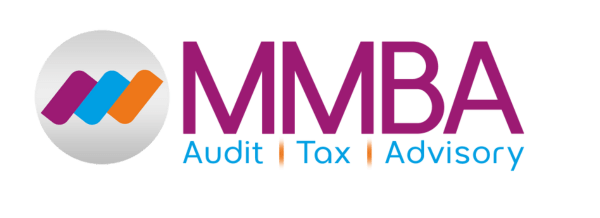
Understanding Cost and Management Accounting, and their Key Differences and Similarities
Recent Blog
Subscribe to Newsletter
Cost Accounting and Management Accounting are two types of accounting that play a part in the business’s financial structures and aid in monitoring, controlling, and evaluating the financial status of an organisation. Despite their similarities, they are used for different purposes to serve two different organisational goals of obtaining different kinds of information about financial management.
In MMBA Accountants we do agree with the notion that cost accounting and management accounting disciplines can go a long way towards improving the ways that a business does its financial management, reduces wastage, and increases its overall profitability.
Table of Contents
Defining Cost Accounting and Management Accounting
Cost accounting is mainly practised in businesses that aim at tracking, reporting, and analysing costs relating to production. It concerns assessing direct costs, like raw material and human resources, and indirect costs (e.g., overhead), essential for determining the actual cost of products or services. Cost accounting uses tools like standard costing, marginal costing, and activity based costing which help in controlling and minimising costs.
On the other hand, management accounting majorly comprises elements such as planning, control, and decision making, taking place within a certain firm or an organisation. It considers not only the figures linked to costs but other aspects of the financial performance of the business too. It provides financial information to the managers and executives of the business that assists them in planning, controlling, and evaluating business operations.
Cost Accounting VS Management Accounting
Although both disciplines are closely related, they do still have key differences between them.
Focus and Scope
- The primary objectives of cost accounting include cost calculation, cost control, and valuations of cost objects (specific products or services).
- On the other hand, management accounting offers a wider and more structured view to contain strategic planning, decision making, and resource control.
Application Process
- Cost accounting helps mainly internal users such as production managers for the control of costs within the production processes.
- Management accounting offers information to managers within the organisation and executives that can be used for decision making as regards a variety of business processes.
Data Orientation
- Cost accounting generally entails historical data, which seeks to find actual cost implications of a production process based on past events.
- Management accounting is proactive, in the sense that it also provides predictions as well as managers can gain insight into the financial health of the business which can help in investment decisions and other strategic planning.

What are the four types of cost accounting?
There are four kinds of cost accounting, each of which has its own purpose and approach. Each type assists a company in achieving a greater understanding of its operations, controlling its expenses, and increasing its profitability. All types of cost accounting help in identifying the actual costs, and future expenditures, which goes a long way in improving decision making and financial performance.
Standard Costing
It is the type of cost accounting that involves setting predetermined costs based on historical data or industry standards. It assists in comparing actual cost with the standard cost in order to identify a variance and enhance cost control hence raising operating profit and efficient control of inventory valuation.
Activity-Based Costing (ABC)
ABC assigns indirect costs to products or services based on the activities that generate those costs. Indirect costs are costs allocated by ABC to products or services that are generated from certain activities. It gives more accurate cost information, is helpful in cost reduction, and improves profitability by enhancing the lean accounting concept.
Marginal Costing
Marginal costing is also known as variable costing and is used in analysing the cost of producing an additional unit. For instance, it helps business organisations understand how changes in production impact total costs and the resultant profit margins – beneficial in short-term decision making.
Lean Accounting
This method aims at reducing wastage and easing the preparation of management reports. It integrates cost accounting with the lean manufacturing system hence enabling the organisation to enhance its efficiency hence reduce cost in order to achieve sustainable profitability.
Each method is useful to serve different business purposes where the quantitative data is essential to enhance the organisational financial performance and cost optimisation.
The Role of Management Accounting in Business Strategy
Management accounting is important to the formulation of a business strategy by providing information to the strategic decision makers about the financial performance of the firm. Its main focus is on future-oriented analysis, which benefits.
Financial Performance Evaluation
Management accounting techniques like trend analysis, budgeting, and variance analysis make it possible for a firm to evaluate its financial performance over time and compare it with the firm’s financial targets.
Resource Allocation
Managing resources means that a business organisation is employing the right amount of resources to ensure optimal returns. Management accounting gives an understanding of where the company is making the most money so that better decisions can be made about investments.
Cost Control and Optimisation
Through an examination of both fixed costs and variable costs, management accounting assists the business in minimising costs and thereby increasing efficiency. Tools such as lean accounting are used to estimate and reduce non-value adding activities for enhancing the organisation’s operations and maximise profitability.
Key Business Decisions
Management accountants give relevant information that assists in making informed business decisions for instance expansion, new products, or changes in business strategy. The use of resources such as cash flow analysis and financial forecasting helps managers make decisions based on financial activities.
Financial Accounting vs. Cost and Management Accounting
Financial accounting techniques are mainly used by external users such as creditors, regulatory bodies, and investors. On the other hand, cost accounting and management accounting methods are mainly used by internal users such as managers and employees of the business.
- Financial accounting is based on generally accepted accounting principles (GAAP) and provides companies’ financial statements as of a particular date.
- On the other hand, cost accounting is focused on the determination of detailed costs to enable control over production costs as well as improvement of financial performance. Management accounting is also tasked with creating accurate, forward-looking reports that might be used by managers in identifying ways and means of enhancing the general welfare of the company.
All three disciplines operate in different fields but provide companies with financial information to make rational financial decisions for their financial prosperity.
How Cost Accounting and Management Accounting Complement Each Other?
Even though cost accounting and management accounting are two different things, they are still interrelated practices in the overall goal of achieving a business’s financial objectives.
- Cost accounting offers specific information on costs for the control of costs, while management accounting relies on this information to make sound and well informed business decisions concerning future operations. For example, a cost accounting system may send out a sign that there are high overhead costs, while management accounting techniques bring out ways of minimising the overhead costs.
- Combined, they underpin the management of a company’s finances, for both short term expense management and longer term strategic planning.
The Importance of Controlling Costs and Maximising Profitability
Cost and management accounting share an important role in contributing to the success of a firm in terms of controlling costs and achieving maximum profit. Cost control is a process of building targets for spending funds and then regularly inspecting the expenses in order to guarantee costs remain within the limit.
Businesses use tools like standard costing and variance analysis to point out where there is wastage and where costs can be cut.
On the other hand, profit maximisation is defined as the process of identifying costs and selecting appropriate strategies and tactics, such as reducing labour costs or adopting lean accounting techniques, to boost profitability.
Both practices help companies to reduce costs while maintaining product or service quality, thereby improving the company’s financial performance.
What Are Some Advantages of Cost Accounting?
Cost accounting has the following benefits that are very essential when a business organisation wants to optimise its return on resources. Here are some of the primary benefits:
Cost Control and Reduction: Cost accounting helps in identifying the areas to minimise expenses and use resources more efficiently.
Pricing Decisions: Cost accounting provides accurate cost data to set competitive, profitable prices.
Profitability Analysis: Another benefit of cost accounting is that it assesses the profitability of each product or service, guiding resource allocation.
Budgeting and Financial Planning: It forms a strong basis for forecasting and setting realistic financial goals.
Improved Operational Efficiency: Cost accounting also identifies inefficiencies, allowing for better control and increased productivity.
What is the key difference between cost accounting & management accounting?
There is only one major difference between cost accounting and management accounting and that is in their aim and objectives. Cost accounting is mainly concerned with recording and analysing real costs such as variable costs, indirect costs, and raw materials. Cost accounting focuses on controlling expenditure and hence enhancing net profit margins. Cost accounting is crucial in cost-cutting, maintaining inventory, and preparing financial statements.
In contrast, management accounting offers reports and information for decision-making, business planning, and strategy formulation. It also concerns features other than costs. It involves budgeting, financial analysis, cash flows, and improving overall business performance for better investment.
Conclusion
In conclusion, both cost accounting and management accounting play a crucial role in the financial health of a business. Cost accounting aims at controlling and assigning costs, while management accounting offers the planning information necessary for efficient financial management.
In MMBA, we understand the significance of cost accounting and management accounting practices that make other businesses succeed. Both these fields can be integrated with each other in such a way that companies not only generate better operating results in today’s competitive environment but also incorporate a competitive advantage into the organisation. Knowledge of such practices helps organisations to make the right decisions that will lead to the establishment of sustainable business.
FAQs About Cost and Management Accounting
What is cost and managerial accounting?
Cost accounting deals with determining and analysing actual costs which include variable costs and overheads, as well as raw materials in an attempt to control costs and improve profit margins.
On the other hand, managerial accounting aids in internal decision making by providing financial analysis. It also creates management reports and provides valuable insights for efficiency improvements and resource allocation.
Is cost and management accounting worth it?
Yes, cost and management accounting are very important in businesses as they assist in cost control formulation of cost structure and other inputs to the companies’ decision making. Through employing cost accounting methods like activity based costing, businesses can control their costs and operating profit is therefore maximised.
What does a cost and management accountant do?
Cost and management accountants evaluate the financial information, monitor standard costs, and provide financial statements to help develop a budget, cost controls needed, and estimate inventory.
Cost and management accountants also assist business leaders concerning the appropriate investments to make, and optimise cash flows in order to positively alter a business’ fiscal position and current financial state by employing practices such as lean accounting and minimising waste.


